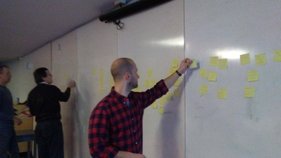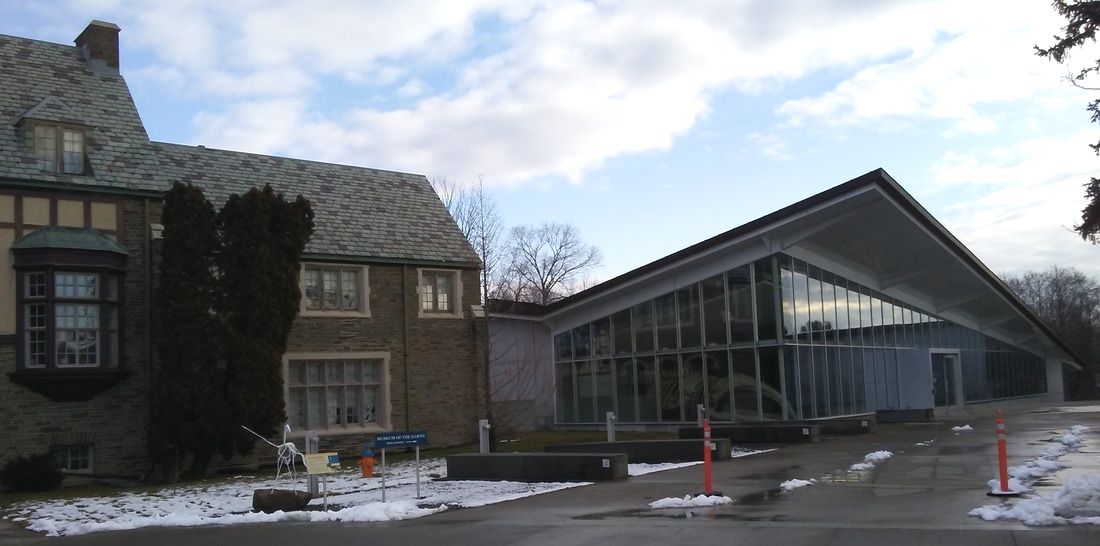|
For our Danforth lab NSF grant (see summary), we are developing a museum exhibit on the diversity of bees, which will be traveling around the country for several years. The first site will be at the Museum of the Earth, in Ithaca, New York. It's been great working with the Paleontological Research Institution (PRI) on this project!
 The process of defining our overarching concept: We are working with Rob Ross and Beth Stricker (from PRI), and Beth's been leading us through some neat exercises in brainstorming. In the initial session, we individually reflected on essential information and key concepts, and wrote short phrases on Post-it notes. In the photo at right we are putting them on the board, clustering by subject to see where the major areas of overlap appear. Our goal was to determine one 'big idea' -- summarized in a single sentence -- that would guide our entire 600 square foot exhibit. From that framework, we also solidified three main themes and laid out quantifiable objectives for what we want visitors to retain after exiting. Traveling museum exhibits are shipped from place to place, so they need to be constructed from the ground up and be sturdy for set-up and take-down. Traveling exhibits will typically be displayed at three to four locations a year, and are built with the intention that they will last three to eight years. With the size of our exhibit, it can be housed in large institutions, but will also be popular with smaller venues, such as regional museums and libraries, potentially coupled with public education activities. Update from Feb. 2019: The content and displays are in development, and the exhibit will be opening September 2019!
2 Comments
Guanyang Zhang
2/4/2017 04:10:50 pm
Glad to find your blog. Nice website! This is tweeted here: https://twitter.com/EntCollNtwrk/status/828032621141598208
Reply
Elizabeth Murray
2/4/2017 07:02:42 pm
Thank you, Guanyang! I'm glad you like the blog. Thanks for the tweet!
Reply
Your comment will be posted after it is approved.
Leave a Reply. |
PhyloBlogCovering topics of phylogenetics and systematics & other science-related news. Archives
October 2019
Categories
All
|


 RSS Feed
RSS Feed